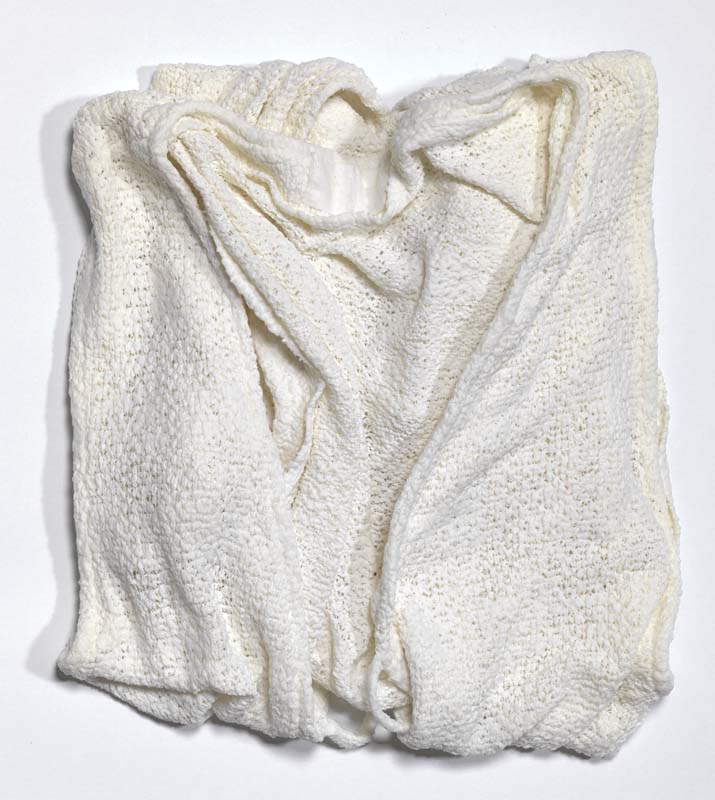We acknowledge the Traditional Owners of the land on which the Queensland Art Gallery | Gallery of Modern Art stands and recognise the creative contribution First Australians make to the art and culture of this country.

Sara Tse / Hong Kong b.1974 / Dress no. 66 2003 / Porcelain, fabric dipped in slip and fired / 4.7 x 20.7 x 24cm / Purchased 2004. Queensland Art Gallery Foundation Grant / Collection: Queensland Art Gallery | Gallery of Modern Art / © Sarah Tse
Sara TseDress no. 66 2003
On Display: QAG, Gallery 17
Sara Tse’s choice of garments reflects the memories they hold for her, and she encourages the viewer to consider their own relationship to clothing — how it both protects and defines the body. By selecting commonly worn garments rather than those reserved for special occasions, she imbues these everyday items with qualities of fragility and preciousness.
The immersion of these mass-produced items in liquid porcelain is quietly suggestive of a re-evaluation of the treasured craft of porcelain. As a traditional medium, porcelain is most commonly prized for its highly finished surface, yet here it is laid bare with its surface raw and unattended.
These objects are also suggestive of an archaeological project with the garments sealed in a porcelain shell, evoking an almost eerie quality of a lost or forgotten life.
Sara Tse was born in Hong Kong in 1974. She completed a Bachelor of Arts (Hons) at the Chinese University of Hong Kong in 1997 and went on to graduate with a Master of Fine Arts at the RMIT University, Melbourne, in 2003.
Tse is the recipient of several scholarships and awards for her ceramic work in Hong Kong, in particular she was awarded winner of the Hong Kong Art Biennial Exhibition at the Hong Kong Museum of Art in 2003.
Tse’s works are made from porcelain, a medium which has historically signified stature and wealth in China, Japan, Korea and Europe. Her simple porcelain technique lies in unique contrast to the elaborate mould process of traditional porcelain ware. Tse carefully dips pieces of everyday clothing in liquid porcelain and once firing is complete, a delicate shell or imprint of the fabric is left, the product of the fluid medium slipping around the fibres of material before they disintegrate.